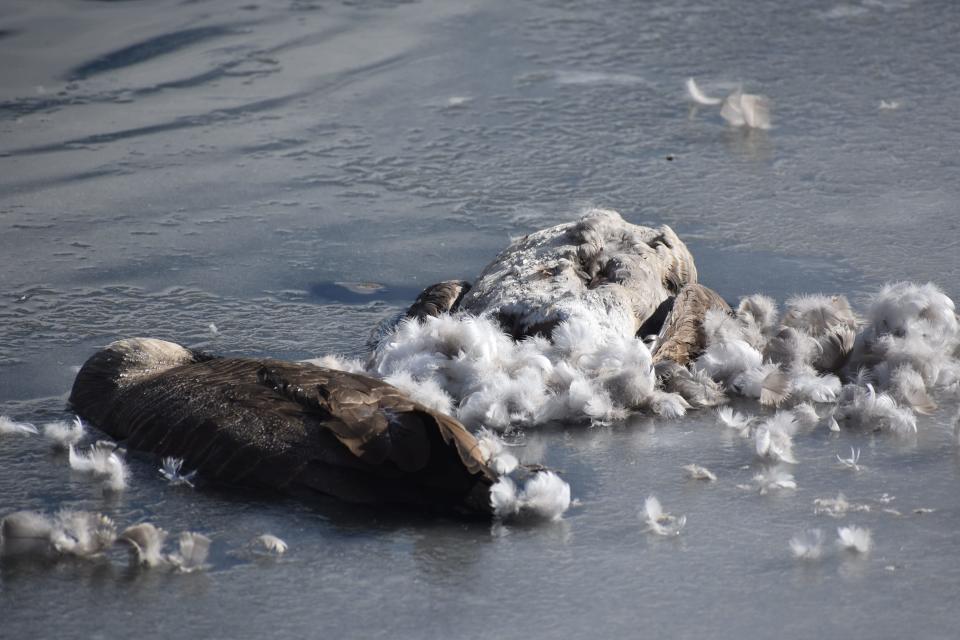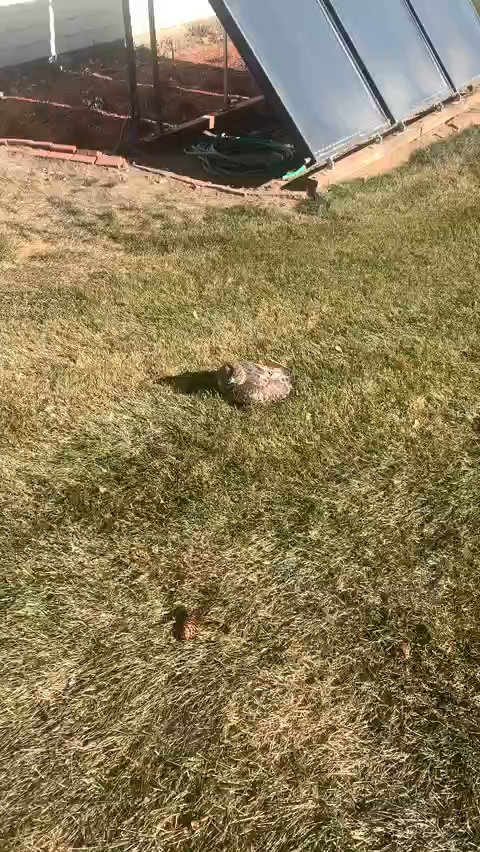With avian flu detected in Larimer County, fowl owners asked to be vigilant

The Larimer County health department is asking residents with backyard poultry to step up their vigilance and take precautions to prevent the spread of the highly pathogenic avian influenza, which has been detected in domestic and wild waterfowl and to a lesser extent raptors in the county.
Avian flu spreads rapidly, especially in domestic flocks of chickens and turkeys, and has a 90% mortality rate in just a few days. It can infect wild waterfowl even if they do not appear sick.
The latest confirmed report of the flu in domestic flocks in Larimer County was 50 birds on Jan. 23, according to the U.S. Department of Agriculture. The virus has been confirmed in nearly 6.3 million domestic poultry Colorado, mostly at egg-laying operations in Weld County, the vast majority of which died or were euthanized.
The health department has suggested keeping a closed flock, decreasing interactions between domestic poultry and waterfowl. It also recommends people with backyard flocks take extra precautions after walks or hikes where they may come into contact with birds, especially waterfowl like geese and ducks.
More than a dozen dead Canada geese found frozen on the ice of Sheldon Lake at Fort Collins City Park two weeks ago likely died from the disease that has claimed tens of thousands of waterfowl and hundreds of raptors in Colorado.
The monthslong outbreak is being felt nationally and internationally in domestic chickens and turkeys and is killing wild birds, including waterfowl and raptors, in unprecedented numbers, according to state wildlife officials.
The disease transmission to songbirds and other typical birdfeeder visitors has been less than 2%, according to the National Wildlife Disease Program. The program has not issued an official recommendation to take down feeders unless people also keep domestic poultry. It is recommended birdfeeders and birdbaths are regularly cleaned.
Mary Wood, wildlife health program supervisor for Colorado Parks and Wildlife, said the agency confirmed highly pathogenic avian influenza in Canada geese in Larimer County on Jan. 5. Once the virus is confirmed in a population, the agency usually doesn't retest because of the prevalence of the disease.
"With wild bird migration beginning soon, we anticipate that we will see an increase in virus activity though late winter and spring,” said Colorado State Veterinarian Dr. Maggie Baldwin in a news release. “While we have seen high mortality in wild birds, they can also be infected with avian flu without appearing sick, which is why biosecurity is so important.”
The risk of transmission from birds to humans is low, but people can be infected, according to the health department, so it's recommended that people don't touch any dead or sick wild birds. It does not present a food safety risk, according to the health department. Proper handling and cooking of all poultry and eggs toan internal temperature of 165 degrees is recommended as a general food safety precaution.
The health department recommends bird owners:
Always clean shoes and remove any soiled materials after coming into contact with bird feces before entering areas where your birds are housed.
Monitor flocks for signs of illness.
Protect flocks with good biosecurity practices and be vigilant in reporting signs of illness.
Report suspicious disease events or illness to the State Veterinarian’s Office at 303-869-9130.
Signs of highly pathogenic avian influenza in birds
Sudden death without clinical signs
Lack of energy or appetite
Decreased egg production
Soft‐shelled or misshapen eggs
Swelling or purple discoloration of head, eyelids, comb, hocks
Nasal discharge
Coughing or sneezing
Lack of coordination
Diarrhea
Get help
Bird owners struggling with stress or anxiety around highly pathogenic avian influenza can contact Colorado Crisis Services by calling 1-844-494-TALK (8255) or texting TALK to 38255. Farmers and ranchers can receive a voucher for six free sessions with an ag-competent provider through the Colorado Agricultural Addiction and Mental Health Program (campforhealth.com).
For more information, bird owners can visit the USDA’s Defend the Flock website or visitPoultryBiosecurity.org. For the up-to-date status of the quarantine and recommendations, visit ag.colorado.gov/hpai.

Coloradoan reporter Miles Blumhardt contributed to this report.
This article originally appeared on Fort Collins Coloradoan: Avian flu detected in Larimer County; flock owners asked to be on guard

